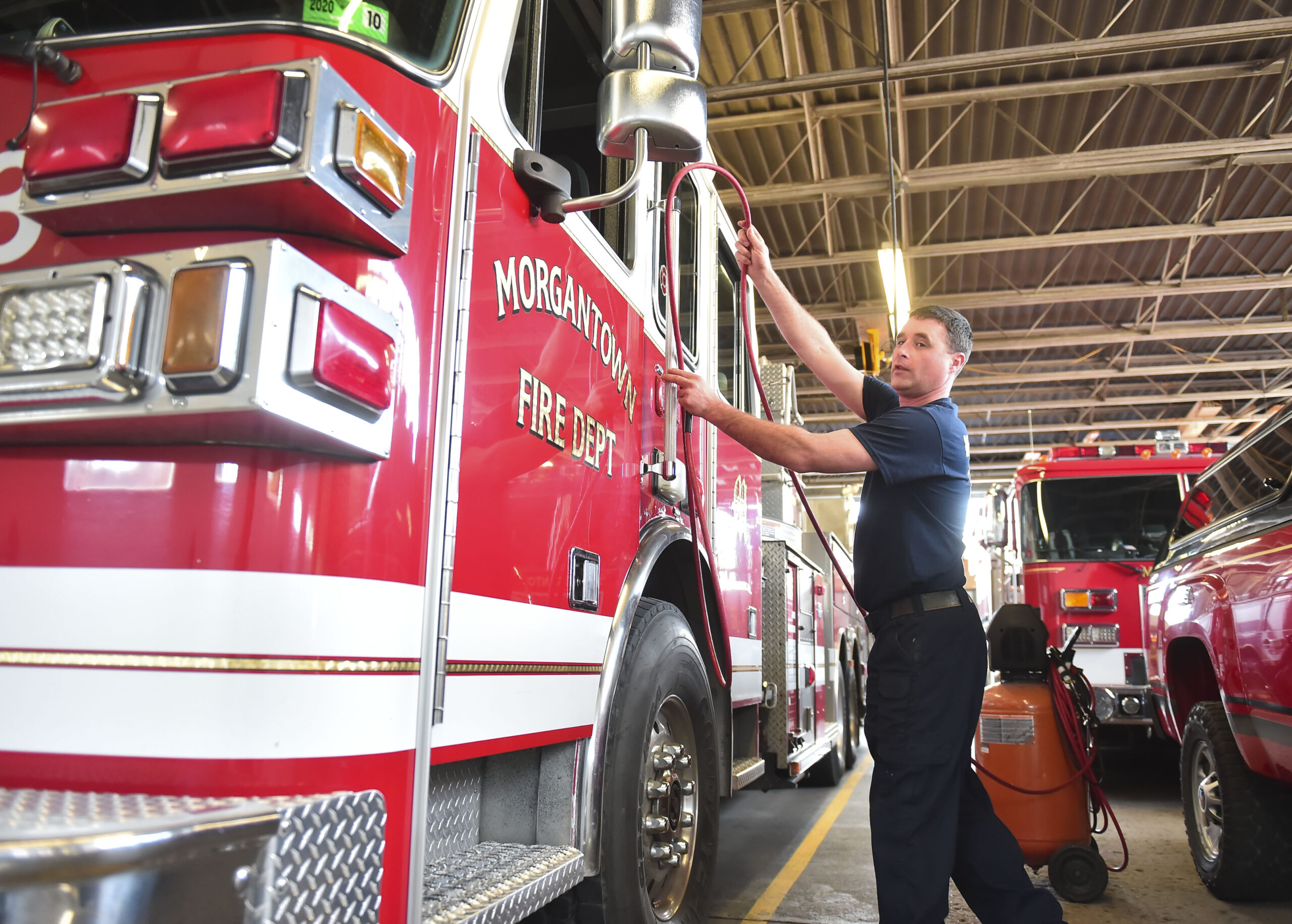As the region faces colder temperatures, many people turn to space heaters or other alternative heat sources to stay warm. With heating equipment as the second-leading cause of home fires in the United States, a West Virginia University fire safety expert advises the best ways to reduce fire risks and stay safe while keeping warm during these cold winter days.
According to research by the National Fire Protection Association (NFPA), most home fires involving heating equipment occur in January, followed by December and February, with most of these fires occurring between 6-9 p.m. The majority of these fires were caused by fixed or portable space heaters, equipment that WVU Extension Fire Service director and assistant professor Mark Lambert warns can be hazardous without proper safety measures.
“Be sure to turn off radiant or electric space heaters before going to bed, especially older models that are prone to tipping over and have no safety shutoff abilities,” said Lambert. “I also would encourage you not to leave them on when leaving your home.”
West Virginia faces higher than average rates of fire fatalities, a matter that can potentially be attributed to rural areas receiving longer response times or the state’s vulnerable elderly population. West Virginia fire departments report nearly double the national average of fire-related incidents, and so far in 2024, the state has already seen six home fire fatalities. With reports by the NFPA stating that around 60% of home fire deaths were caused by fires in structures with no smoke alarms or failed smoke alarms, Lambert emphasizes the importance of functional smoke and carbon monoxide detectors.
“In some recent fire fatalities in West Virginia and elsewhere, the investigators have concluded there were no working smoke detectors,” said Lambert. “Having working smoke and carbon monoxide detectors is one of the easiest and cheapest ways to save your family and yourself.”
Lambert suggests installing smoke alarms on every level of your home, including near sleeping areas. Smoke and carbon monoxide alarms should be tested monthly and batteries replaced at least once a year. If you need smoke detectors for your home, you can contact the West Virginia State Fire Marshal’s office or reach out to local fire departments. In the case of renters, landlords are required to provide smoke detectors, while tenants are responsible for regularly testing and replacing batteries in the alarms.
Lambert recommends sleeping with doors closed, as it increases your likelihood of surviving a house fire by 70%. Establish an escape plan and safety measures with other household members by determining two ways out of your home or apartment, designating a meeting place outside of the home and ensuring all household members know how to contact 911 in the event of an emergency.
The United States Fire Administration estimated 353,500 residential building fires occurred nationally in 2021. Considering the heating equipment related increase in home fires in winter months, as well as West Virginia’s above average rates of home fires, education and preparation are keys to keeping yourself and your household safe.
For more information, visit extension.wvu.edu/community-business-safety/home-safety/home-fire-safety.




